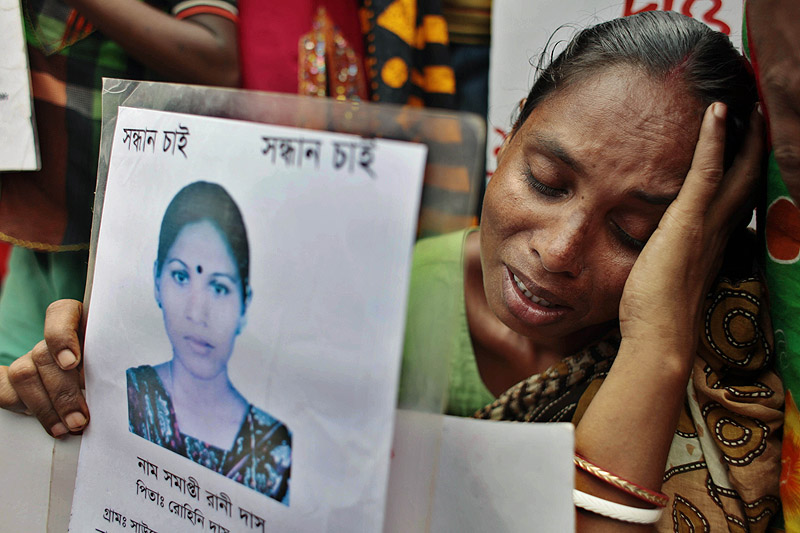WASHINGTON – The United States will suspend trade benefits on $34.7 million in goods from Bangladesh because of inadequate labor and safety standards in the Asian nation where a garment-factory collapse killed more than 1,000 workers in April.
“This was not a decision taken lightly by the administration,” U.S. Trade Representative Michael Froman said Thursday on a call with reporters.
While the U.S. had been reviewing Bangladesh’s trade status prior to the factory collapse, the April 24 incident highlighted U.S. concerns about labor and safety conditions in the country, he said.
President Obama’s administration is beginning talks with the Bangladesh government to improve conditions and qualify for the trade benefits, which eliminate duties on the imports, Froman said.
“There’s no particular timetable in mind,” he said.
The collapse of the Rana Plaza factory, the worst industrial accident in the nation’s history, prompted increased scrutiny of the country’s labor conditions. Labor groups also have criticized retailers including Wal-Mart Stores and Gap for not joining a legally binding agreement to improve worker safety in Bangladesh.
“The global workplace cannot be a deathtrap for poor workers producing products for the global economy,” Richard Trumka, president of the AFL-CIO, the largest U.S. labor federation, said in a statement.
The U.S. action “sends an important message to our trading partners,” he said, saying nations that tolerate unsafe working conditions will lose access to the U.S. market.
Bangladesh participates in a U.S. program known as the Generalized System of Preferences, which allows zero or reduced tariffs on some products imported from developing countries.
The trade preferences exclude imports of Bangladesh’s apparel, which the U.S. Commerce Department said represented 91 percent of the $4.9 billion in U.S. imports from the nation last year.
The U.S. action is largely symbolic because textiles and apparel aren’t included, and it may influence the European Union’s review of trade preferences, Jonathan Fee, a trade lawyer at Alston & Bird LLP in Washington.
“It would be a giant kick in the teeth for Bangladesh to lose GSP status with the EU,” which includes apparel, he said.
The U.S. had considered steps to raise tariffs on some Bangladeshi goods even before the collapse.
In a Jan. 8 notice in the Federal Register, the U.S. Trade Representative’s office said that “the lack of progress by the government of Bangladesh in addressing worker rights issues in the country warrants consideration of possible withdrawal, suspension or limitation Bangladesh’s trade benefits.”
Democrats in Congress praised the administration’s decision.
“Bangladesh’s labor laws must be dramatically improved and suspending GSP benefits will hopefully help kick-start these overdue reforms,” Senate Foreign Relations Committee Chairman Robert Menendez, D-N.J., said in a statement.
The U.S. action is “an appropriate and welcome step,” Democratic Reps. Sander Levin of Michigan and George Miller of California said in joint statement.
“We expect this decision will be viewed with interest by others considering similar action, such as the European Union,” they said.
Miller and Levin said they would continue to push U.S. corporations to join a legally binding accord that allows companies to source products from Bangladesh only if labor rights and conditions in the country improve.
Wal-Mart of Bentonville, Ark., and San Francisco-based Gap are among the U.S. retailers forging an agreement to establish a $50 million, five-year fund to improve safety conditions in Bangladesh garment factories, the Wall Street Journal reported Wednesday, citing a person familiar with the matter.
Send questions/comments to the editors.



Success. Please wait for the page to reload. If the page does not reload within 5 seconds, please refresh the page.
Enter your email and password to access comments.
Hi, to comment on stories you must . This profile is in addition to your subscription and website login.
Already have a commenting profile? .
Invalid username/password.
Please check your email to confirm and complete your registration.
Only subscribers are eligible to post comments. Please subscribe or login first for digital access. Here’s why.
Use the form below to reset your password. When you've submitted your account email, we will send an email with a reset code.